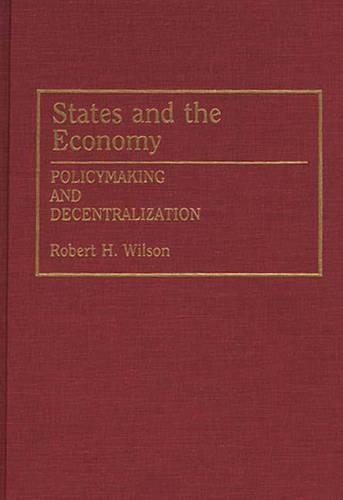
States and the Economy: Policymaking and Decentralization
(Hardback)
Publishing Details
States and the Economy: Policymaking and Decentralization
By (Author) Robert H. Wilson
Bloomsbury Publishing PLC
Praeger Publishers Inc
24th May 1993
United States
Classifications
Tertiary Education
Non Fiction
Regional, state and other local government
339
Physical Properties
Hardback
304
Width 156mm, Height 235mm
737g
Description
Wilson examines how economic and political decentralization is affecting the development policymaking environment at the state level. The book first empirically examines the changing economic geography of the country and the specific effects on the economic structure of states. Following this, three case studies are presented. These constitute an investigation of the intergovernmental context of public policymaking and the historical role of state government in development. Economic development and technology policy generally involve targeted assistance to particular elements of the economy. Telecommunications policy represents a regulatory role for states in the most significant infrastructure of the information age. Education and training, long principal responsibilities of state government, represent a form of social infrastructure and are perhaps the most vital for ensuring the long-term viability of a states's economy. Each of these policy areas present different state development roles, and the ability of a state to adapt its policies appropriately will determine--according to this author--its future prosperity. This text will be of interest to scholars, students, and policymakers in regional planning, state and local government, public administration, and public policy.
Author Bio
ROBERT H. WILSON is professor at the Lyndon B. Johnson School of Public Affairs of the University of Texas. He is the coeditor of Telecommunications and Rural Development (Praeger, 1991) and The New Urban Infrastructure (Praeger, 1990).
